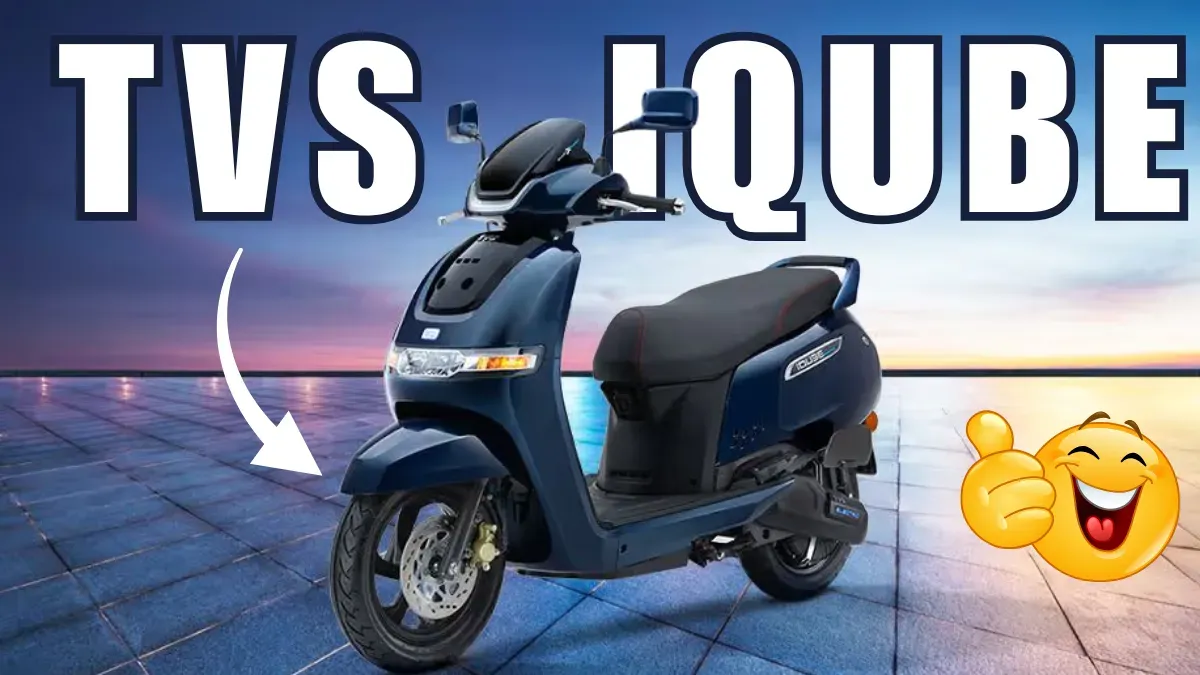The electric two-wheeler market in India has witnessed rapid evolution, and among the many options, the TVS iQube stands out for its balance between performance, practicality, and eco-conscious design. As cities become smarter and greener, the demand for reliable electric scooters has surged, and TVS has responded with a well-rounded electric vehicle that caters to both daily commuters and new-age riders looking for sustainable mobility.
Design and Build Quality
The TVS iQube sports a futuristic yet minimalist design, combining functionality with style. The scooter has a clean look with sleek LED headlamps, an integrated DRL, and a digital display that enhances its modern appeal. The build quality is solid, with a strong frame and durable body panels that suggest it’s built for urban roads.
It also features a spacious seat, robust grab rails, and good under-seat storage space. While the design isn’t overly aggressive or sporty, it reflects a premium, practical aesthetic suited to both young riders and working professionals.
Performance and Riding Experience
Equipped with a BLDC motor, the iQube delivers a peak power of 4.4 kW and is capable of reaching a top speed of around 78 km/h. It accelerates smoothly and silently, with a 0-40 km/h time of just 4.2 seconds, making it perfect for city commuting and quick overtakes in traffic.
The iQube ST variant offers a real-world range of up to 145 km on a single charge, while the standard model promises around 100 km under ideal conditions. There are two riding modes – Eco and Power, allowing users to toggle between better range and higher speed depending on their needs.
The scooter rides on 12-inch wheels, with telescopic suspension at the front and twin shock absorbers at the rear, providing decent comfort over potholes and speed bumps. The braking setup includes disc brakes at the front and drum at the rear, supported by regenerative braking for improved efficiency.
Smart Features and Connectivity
Where the iQube truly shines is in its smart technology integration. It comes with a TFT digital display (5-inch or 7-inch depending on the variant) and TVS SmartXonnect platform, offering turn-by-turn navigation, incoming call/SMS alerts, real-time vehicle diagnostics, ride statistics, and geo-fencing.
The scooter also supports OTA (Over-The-Air) updates, voice assistance, and smartphone connectivity via a dedicated app. Riders can also use features like remote battery status, last parked location, and service reminders from their phone – making the iQube more like a smartphone on wheels.
Battery and Charging
The TVS iQube is powered by Li-ion battery packs with a smart BMS (Battery Management System) that ensures optimal energy use and safety. It supports home charging via a 650W or 950W charger, taking around 4-5 hours for a full charge. The iQube ST also supports fast charging with optional higher-output chargers.
While it doesn’t offer swappable batteries like some competitors, the overall charging time is manageable for most urban riders. The brand is also working on expanding its charging infrastructure in metro cities.
Safety and Reliability
The iQube comes with IP67-rated battery protection, anti-theft alarm, parking assist, and side-stand indicator. TVS has backed the scooter with a 3-year/50,000 km warranty, with roadside assistance and service support available across major Indian cities. Its engineering roots in a reputed brand like TVS also bring long-term trust and lower maintenance concerns.
Pricing and Variants
TVS offers the iQube in multiple variants – iQube, iQube S, and iQube ST. Pricing starts around ₹1.17 lakh (ex-showroom, including FAME II subsidy) for the base model, with the ST variant going up to ₹1.45 lakh (approx). State-level subsidies may reduce the on-road price further in some regions.
Final Thoughts
The TVS iQube strikes an impressive balance of technology, practicality, and real-world usability. It’s not the flashiest e-scooter, but it’s dependable, smart, and efficient — qualities that matter most in daily urban mobility. With continuous updates and an expanding support ecosystem, the iQube is a strong contender for anyone planning to switch to electric two-wheelers in 2025.






